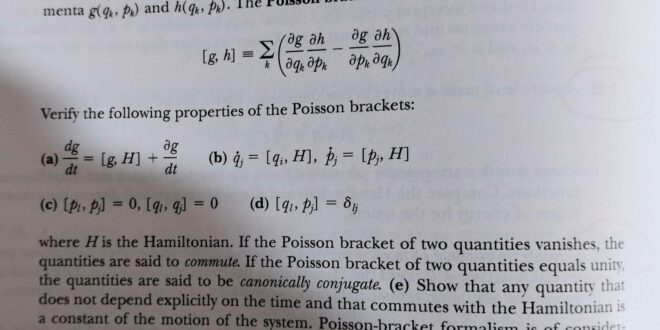Classical mechanics is a fundamental branch of physics that deals with the motion of objects, both large and small, under the influence of forces. Solving classical mechanics problems requires a thorough understanding of the underlying principles and equations that govern motion.
In this article, we will guide you through solving classical mechanics problems step-by-step, breaking down complex concepts into easy-to-follow explanations. By following our detailed instructions and practice problems, you will gain the skills and confidence needed to tackle any classical mechanics problem with ease.
Lets dive in and explore the fascinating world of classical mechanics together.
Understanding the Basics of Classical Mechanics

Understanding the Basics of Classical Mechanics is essential for mastering the problem-solving techniques in this field of physics. Classical mechanics is the study of the motion of objects and the forces acting on them, based on the laws of motion formulated by Sir Isaac Newton.
To solve classical mechanics problems step-by-step, one must first grasp the foundational concepts such as Newtons laws of motion, momentum, energy, and the principles of work and energy. These fundamental principles provide the basis for analyzing and solving a wide range of mechanical problems, from simple motion in one dimension to more complex systems involving multiple forces and objects.
By understanding the basics of classical mechanics, one can effectively apply these principles to tackle real-world problems and predict the behavior of physical systems with accuracy and precision.
Identifying the Problem and Drawing a Diagram

First and foremost, before tackling any classical mechanics problem, it is essential to clearly identify the problem at hand. This involves carefully reading the problem statement, understanding what is being asked, and determining what information is given.
It is also important to draw a diagram to visually represent the problem and help clarify the different components involved. The diagram can help visualize the forces at play, the directions of motion, and any other relevant quantities.
By taking the time to identify the problem and draw a diagram, you can set a solid foundation for solving the problem step-by-step and avoid making errors along the way.
Applying Newtons Laws of Motion

Applying Newton\’s laws of motion is essential for solving classical mechanics problems with precision and accuracy. By understanding and implementing these fundamental principles, you can effectively analyze and predict the motion of objects in various scenarios.
Whether you are calculating the acceleration of a falling object or determining the forces acting on a system, Newtons laws provide a solid foundation for problem-solving in physics. By breaking down each step of the problem and considering the forces at play, you can effectively apply Newtons laws to find the solutions you need.
Through careful analysis and calculations, you can gain a deeper understanding of the mechanics behind any given situation and confidently tackle even the most challenging problems with confidence.
Conclusion
In conclusion, mastering classical mechanics can be achieved by following a structured approach that breaks down problems into manageable steps. By understanding the fundamental principles and applying them methodically, even complex problems can be solved efficiently.
The step-by-step approach provides a clear roadmap for tackling challenges in classical mechanics, allowing students to build confidence and improve their problem-solving skills. With regular practice and persistence, anyone can become proficient in solving classical mechanics problems.
Remember, the key is to remain patient and diligent in your efforts, and soon you will find yourself confidently tackling a variety of solved problems in classical mechanics.
 HQ Grande Prairie HQ Grandie Prairie is an online news portal aimed at providing latest day to day happenings of the World to its viewers.
HQ Grande Prairie HQ Grandie Prairie is an online news portal aimed at providing latest day to day happenings of the World to its viewers.

